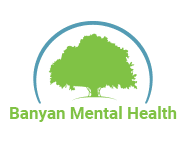Schizophrenia and Addiction Treatment
Schizophrenia and Addiction Treatment
According to research, the rate of substance abuse is 50% higher among people with schizophrenia than among the general population, with the most commonly abused drugs among individuals with schizophrenia being alcohol, nicotine, cocaine, and marijuana.1 Schizophrenia is a severe neurological disorder that causes a break between an individual’s experience and their surrounding environment. Also referred to as a mental illness, schizophrenia produces highly debilitating symptoms, which is why self-medication with illicit and prescription drugs is common among sufferers. Our numerous Banyan facilities for mental health offer schizophrenia and addiction treatment. In addition to treating people with either condition, we can treat those who suffer from both schizophrenia and addiction, referred to as co-occurring disorders.
Can Substance Abuse Cause Schizophrenia?
Schizophrenia alters the individual’s sense of reality, causing symptoms like delusional beliefs, hallucinations, disorganized thoughts, and strange personality traits. This disorder can also produce symptoms that are frightening to both the individual and their surrounding loved ones.
Because schizophrenia interferes with thought processes, behaviors, and communication, it can impair an individual’s ability to work, go to school, interact socially, think, concentrate, and sustain healthy relationships. As a result, hospitalization, unemployment, homelessness, and suicide attempts are common consequences of this disorder.
While there’s no direct cause-and-effect relationship between schizophrenia and addiction, substance abuse can intensify the severity of schizophrenic symptoms, increase the frequency of psychotic episodes (sometimes referred to as substance-induced schizophrenia), and increase the risk of hospitalization, incarceration, and suicide attempts. What’s more, the signs of schizophrenia can easily be confused with those of substance abuse.
Substance abuse and schizophrenia may have the following symptoms in common:
- Auditory or visual hallucinations
- Delusional beliefs about oneself and others
- Difficulty concentrating
- Difficulty performing at school or work
- Disorganized thoughts
- Mood swings
- Odd or inappropriate emotional responses
- Poor judgment and high-risk behaviors
- Rapid and pressured speech
- Unpredictable behaviors
- Withdrawal from social situations and loved ones
The effects of addiction can also mask the symptoms of schizophrenia, while schizophrenia symptoms can make it difficult to identify a drug or alcohol problem. Co-occurring disorder treatment for drug addiction and schizophrenia addresses both these conditions to ensure the individual achieves both a physical and mental recovery.
Schizophrenia and Substance Abuse Treatment
The early onset of the disorder combined with the persistence and severity of symptoms make the social impact of schizophrenia considerable. Schizophrenia and substance use also commonly co-occur, as many individuals with this disorder will turn to drugs or alcohol to cope with their symptoms. Addiction and schizophrenia treatment places an intensive focus on addressing the symptoms of this mental illness while providing the care required for physical recovery from drugs or alcohol.
When treated independently, treatment for schizophrenia and drug addiction typically involves a combination of medications, psychotherapy, rehabilitation education, and self-help groups. The dual diagnosis programs at Banyan’s residential mental health facilities work by treating both schizophrenia and substance use disorders for their individual effects and for their contributing factors.
Individuals with severe drug use disorders will undergo medically supervised detox to address physical symptoms and ensure the individual is able to focus on mental recovery without struggling with cravings and withdrawals. Once the user’s body is free of drugs or alcohol, they can then work with our clinical team to assess their schizophrenia symptoms and how best to cope.
Dual-diagnosis patients will attend various therapies to address the underlying causes of their disorders. One of the most common forms of therapy used at our dual diagnosis rehab centers is cognitive behavioral therapy (CBT). This is a form of psychotherapy that helps clients identify the negative behaviors and emotions that may contribute to their addiction or mental illness and how best to cope with them.
In addition to individual therapy, our addiction and schizophrenia treatment center also prioritizes family therapy not only to help loved ones heal but also to reduce the amount and severity of stressors that can trigger symptoms of both disorders. Many individuals with schizophrenia live in high-stress homes, which is why we incorporate individual and group family therapy sessions in treatment.
Help for Schizophrenia & Addiction at Banyan
Recovery from mental illness and addiction is possible.
If you or a loved one suffers from co-occurring disorders or an individual mental illness, contact Banyan Treatment Centers today to learn how our adult mental health services can help.
Source:
Related Reading:




